My Year of Bookish Wisdom: 2022
by Miles Raymer
A Year of New Beginnings
As we prepare to say goodbye to 2022 with the usual holiday celebrations, I am reflecting on some important life developments that came about this year. The most impactful of these was Jessie’s new job as McKinleyville High School’s teacher-librarian, which she started this fall. Landing a librarian position at a local school has been Jessie’s main career goal for years now, so it was incredibly satisfying to see all her hard work pay off. It seems like a great fit so far, and we are very appreciative of all the MHS students and staff who have welcomed her with open arms. Jessie’s professional transition has also kept me mindful of the ongoing financial support that I receive from her and Ma, without which I almost certainly would not have been able to keep Words&Dirt going for all these years.
The other major development this year was that I finally managed to get into graduate school…although not quite in the way I expected. After my first failed attempt to gain admission to Cal Poly Humboldt’s (formerly Humboldt State University) Counseling MA program in 2021, I decided to apply again in 2022. This year I made it as far as the interview round, but in the end I still wasn’t accepted. This felt like a major setback, and my ego definitely took a hit. But I dusted myself off fairly quickly, started researching alternatives, and eventually concluded that National University’s online MAC Program would be a great option. The application and enrollment process went very smoothly, and I started classes in September. I am loving the program so far and feel fortunate to live in an era when technology allows me to get my MA remotely without having to leave home. After more than two years of planning, prerequisites, and volunteering, it’s exhilarating to finally be on my way!
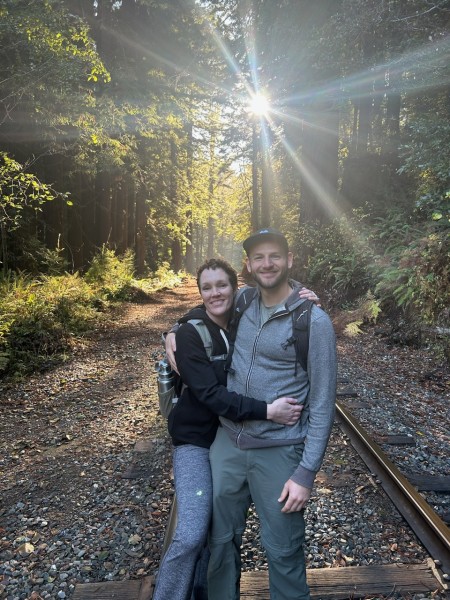
Celebrating Jessie’s 40th birthday on the Mendocino Coast
Next year will be packed with more learning and practicum work starting in the fall. For the moment, I’m keeping cozy and counting my blessings––including the many great books I was able to read this year.
Nonfiction
Having read and reviewed William K. Rawlins’s Friendship Matters back in 2020, I was surprised and delighted to find an email in my inbox from Rawlins in May. Apparently he found my review and enjoyed it so much that he wanted to send me a copy of his more recent book, The Compass of Friendship.
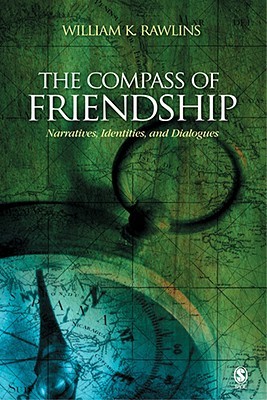
Compass is a fitting and logical extension of the work that Rawlins began in Friendship Matters. It utilizes the same dialectical framework but expands his research into new territory, including illuminating examinations of cross-sex, cross-race, and political friendships.
As my journey into counseling psychology has unfolded, I have become more and more fascinated by and concerned with the psychological challenges faced by boys and men. In a world still shaped by the echoes and extant pressures of patriarchy, it can sometimes feel counterintuitive to worry about male well-being. But the unfortunate reality is that vast numbers of boys and men are struggling mightily to find their place in the modern world, both in America and across the globe. The structural forces driving this trend are masterfully unveiled in Richard V. Reeves’s new book, Of Boys and Men.
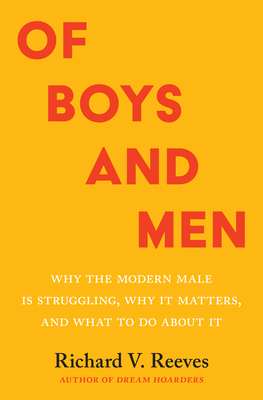
This book is a tour de force of scientific analysis, social commentary, and passionate argumentation. Reeves’s descriptions and statistical analyses of what he calls the “male malaise” are arresting, and his policy recommendations are attainable and concrete. Best of all is his clarion call for a contemporary form of “prosocial masculinity” that will “help men adapt to the dramatic changes of recent decades without asking them to stop being men” (xiii).
While the question of how to “be a man” in this day and age is indeed pressing, we also do well to acknowledge the common humanity that unites us all. One essential feature of human biology is our capacity for certain types of self-awareness––for consciousness. The question of what consciousness is and why it arises has puzzled philosophers and scientists for all along as those traditions have existed. Anil Seth’s Being You represents a special contribution to our ongoing exploration of the human mind.
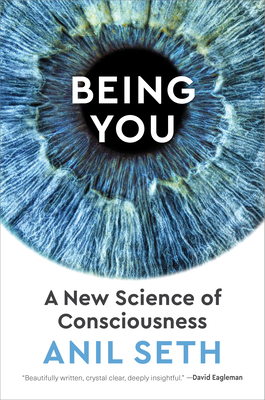
I was skeptical that a single book could radically improve my ideas about consciousness, but I have to tip my hat to Seth for dashing my doubts. His articulations of the “Real Problem of Consciousness,” the “Controlled Hallucination Theory of Perception,” and the “Beast Machine Theory of Consciousness” have carved out a special niche in my intellectual life. Seth has not “solved” the (perhaps-insoluble) question of consciousness, but he has clarified and focused the question beautifully.
Music Recommendations:
Brackenlore and Speak Frond and Enter by Fernmage
Favorite Tracks: “Beneath The Fragrant Lilacs” and “Morningtide”
Just a quick note on this one: Fernmage is the creation of Ryan Beauchamp, Jessie’s cousin. It turns out that he’s not only a super talented tattoo artist and painter, but also a musician! The guy is truly a creative genius. These ethereal and playful tunes will set the scene for your next role-playing or card-gaming session, a mystical walk in the woods, or puttering around in the garden.
Into the Blue by Broken Bells
Favorite Tracks: “Love On The Run” and “One Night“
Outside Child by Allison Russell
Favorite Track: “Persephone“
Red Garland’s Piano by Red Garland
Favorite Track: “Almost Like Being In Love“
Durand Jones & The Indications (Self-Titled) by Durand Jones & The Indications
Favorite Track: “Is It Any Wonder?“
Quiet Places by Andreas Wollenveider
Favorite Track: “The Pyramidians“
Reflections by Yenisei
Favorite Track: “Gravity“
Podcast Recommendations:
Much to my amusement, a large number of my friends independently discovered the same podcast this year and began recommending it to everyone else. The podcast is Andrew Huberman’s Huberman Lab, which I cannot recommend highly enough. Whether you decide to binge his whole catalogue or just listen to the episodes on topics that interest you, I guarantee that spending time with this podcast will make you a smarter, more thoughtful, and healthier person.
I have also fallen in love with Andrew Sullivan’s Dishcast, which I anticipate with relish every week.
Fiction:
Like many others, I was wowed by Anthony Doerr’s All the Light We Cannot See when I read it back in 2016. So I was excited when I heard he had a new novel coming out, and then I got lucky when Ma gifted me a copy of Cloud Cuckoo Land last Christmas.
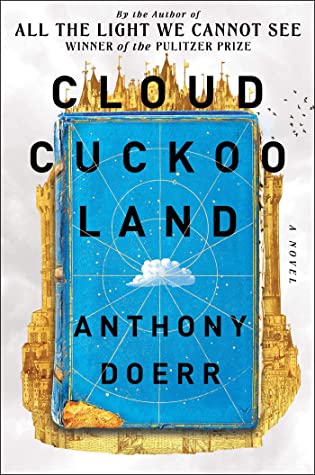
Cloud Cuckoo Land is incredibly intricate and weird, in the best way. Taking inspiration from an ancient novel by Antonius Diogenes that survives merely as “a few papyrus fragments” and a “ninth-century plot summary” (Author’s Note), Doerr weaves together three narrative arcs from different eras in humanity’s past, present, and future. This “paean to books” examines the painfully-contingent nature of human knowledge and memories, as well as the heroic lengths undertaken to keep them alive over the course of deep time.
While novels like Cloud Cuckoo Land broaden our perspective by tackling grand, century-spanning themes, others teach us about human nature by shining a stark spotlight on familial dysfunction. The work of Pat Conroy has been on my literary radar for some years, but this year I finally got around to reading one of his most beloved novels, The Prince of Tides.
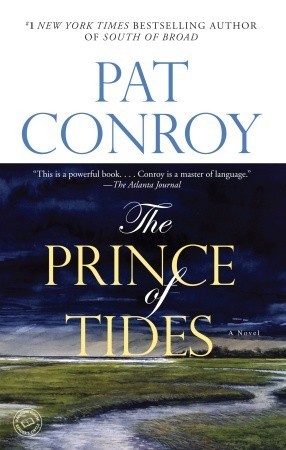
The Prince of Tides tells the story of the Wingos, a family from South Carolina’s Lowcountry. The main characters are three siblings who are born at the beginning of the American postwar period: Tom and Savannah (twins), and their older brother Luke. Tom, our narrator, has spent most of his adult life ignoring the horrific details of his upbringing, but is forced to reckon with his past in order to help Savannah recover from a grim battle with mental illness. Conroy’s prose is superb, as is his bold exploration of the internal contradictions of modern American manhood.
My favorite novel of the year was Hanya Yanagihara’s To Paradise. After getting absolutely wrecked by A Little Life back in 2015, I was eager to see what Yanagihara would come up with next. And she did not disappoint.
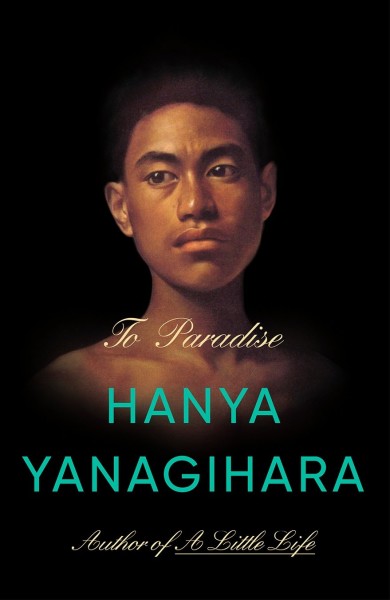
To Paradise is a strange and extremely ambitious novel that pushes the limits of the writer’s creativity and the reader’s imagination. The story is told in three Books, each of which is loosely connected through the recurrence of certain character names and relationship dynamics that inhabit a single home in Washington Square, New York City. Book I takes place in 1893, and invites the reader into an alternate history in which the American Civil War had much different consequences. Book II takes place in 1993, and explores the true-history HIV/AIDS crisis and the Hawaiian sovereignty movement. Book III takes place in 2093, and depicts an America that has devolved into a grim totalitarian dystopia. These stories appear to take place in separate but metaphysically-linked universes, but the novel is highly interpretable on many levels.
I loved every page of this novel but found Book III to be especially memorable. It is a timely and absolutely terrifying extrapolation of current challenges brought about by climate change and the COVID-19 pandemic. This includes incisive examinations of disease and resource management, the politics of media and (mis/dis)information, the ethics of science when millions of lives are at stake, and Orwell-level passages that capture the creeping emotional devastation of dystopia. Here’s what I am talking about:
The world that we live in––a world that, yes, I helped create––is not one that will be tolerant of people who are fragile or different or damaged. I have always wondered how people knew it was time to leave a place, whether that place was Phnom Penh or Saigon or Vienna. What had to happen for you to abandon everything, for you to lose hope that things would ever improve, for you to run toward a life you couldn’t begin to imagine? I had always imagined that the awareness happened slowly, slowly but steadily, so the changes, though each terrifying on its own, became inoculated by their frequency, as if the warnings were normalized by how many there were.
And then, suddenly, it’s too late. All the while, as you were sleeping, as you were working, as you were eating dinner or reading to your children or talking with your friends, the gates were being locked, the roads were being barricaded, the train tracks were being dismantled, the ships were being moored, the planes were being rerouted. One day, something happens, maybe something minor, even, like chocolate disappears from the stores, or you realize there are no more toy shops in the entire city, or you watch the playground across the street from you be destroyed, the metal jungle gym disassembled and loaded into a truck, and you understand, suddenly, that you’re in danger: That TV is never returning. That the internet is never returning. That, even though the worst of the pandemic is over, the camps are still being built. That when someone said, in the last Committee meeting, that “certain people’s chronic procreation was welcome for once in history,” and no one reacted, not even you, that everything you had suspected about this country––that America was not for everyone; that it was not for people like me, or people like you; that America is a country with sin at its heart––was true. (588)
So, on that note, I guess, like…happy holidays?
But seriously, I like the grim stuff and I know it’s not for everyone. I hope if you made it this far that this ending isn’t too much of a downer. Please know that I am so grateful for another year of reading, writing, and engagement with the small group of lively readers who visit Words&Dirt regularly or just dip in from time to time. I’m wishing each of you a warm, restful, and joyful holiday season.
Happy Holidays! I just wanted to drop in and say that I started following words and dirt sometime this summer, and your thoughtful book reviews prompted my rekindled love of reading. Actually, it may have been a joint effort between W&D and Ada Palmer’s Terra Ignota (which I first read about here). Cheers and thanks!
Hi Lara and happy holidays! Thanks so much for leaving this comment. Your statement that my work has helped you rediscover your love of reading is the best possible gift I could receive from a W&D reader. How marvelous!
I am so glad to hear that you are enjoying Terra Ignota. It is such a unique and rich literary achievement. I can’t wait to see where Palmer’s writing career goes in the coming years. Happy reading and I will do my best to keep producing material that is worthy of your readership in 2023 and beyond. 🙂
Just saw this! nice. i always enjoy your bookish wisdom piece. Heard Yanigahara interviewed when To Paradise came out, hope i get to read it some day, i was similarly “wrecked” by A Little Life. cheers!
Cheers Dad and thanks as always for reading! 🙂
You’re amazing!
Thanks Jonah for reading and leaving this kind comment. 🙂